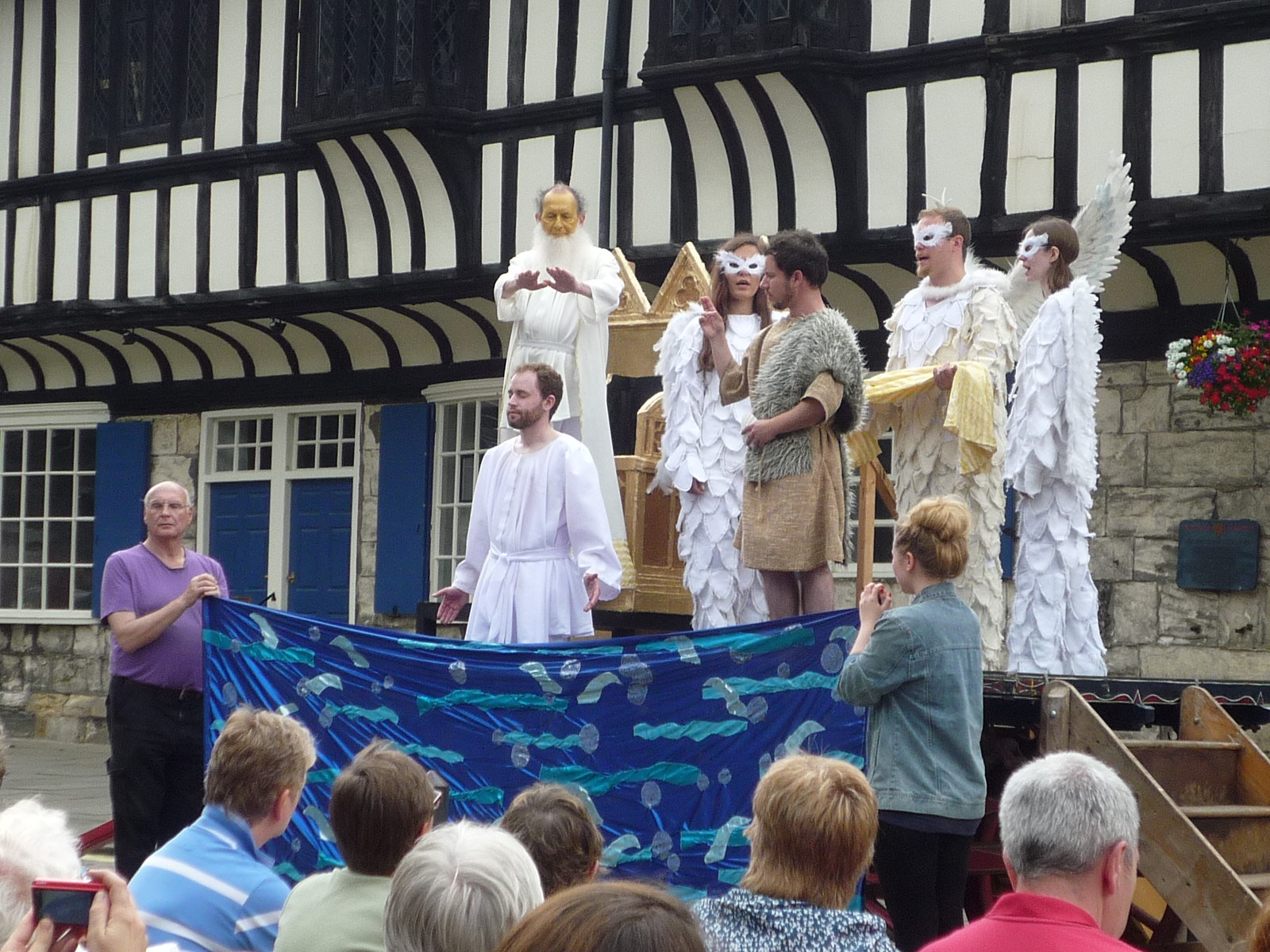
York Mystery Plays
The York Mystery Plays, more properly the York Corpus Christi Plays, are a Middle English cycle of 48 mystery plays or pageants covering sacred history from the creation to the Last Judgment. They were traditionally presented on the feast day of Corpus Christi (a movable feast on the Thursday after Trinity Sunday, between 23 May and 24 June) and were performed in the city of York, from the mid-fourteenth century until their suppression in 1569. The plays are one of four virtually complete surviving English mystery play cycles, along with the Chester Mystery Plays, the Towneley/Wakefield plays and the N-Town plays. Two long, composite, and late mystery pageants have survived from the Coventry cycle and there are records and fragments from other similar productions that took place elsewhere. A manuscript of the plays, probably dating from between 1463 and 1477, is still intact and stored at the British Library.[1][2]
The authorship of the plays is unknown, but analysis of the style allows scholars to recognise where authorship changes. One group of plays, concerned with the Passion, has been attributed to a writer called "The York Realist",[5] and the name has come into general use.[1] The eight plays concerned are
They are all written in vigorous alliterative verse as are other plays in the cycle. The distinctive feature, apart from the high quality of the writing, is the attention to incidental detail in the story-telling and in the subtle portrayal of the negative characters: Pilate, Herod, Annas and Caiaphas. Playwright Peter Gill expressed the view that "If it hadn’t been for the York Realist, Shakespeare would have been a second rate writer like Goethe".[6]